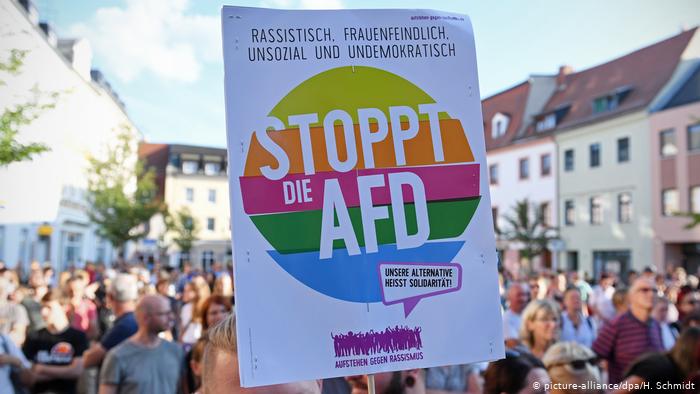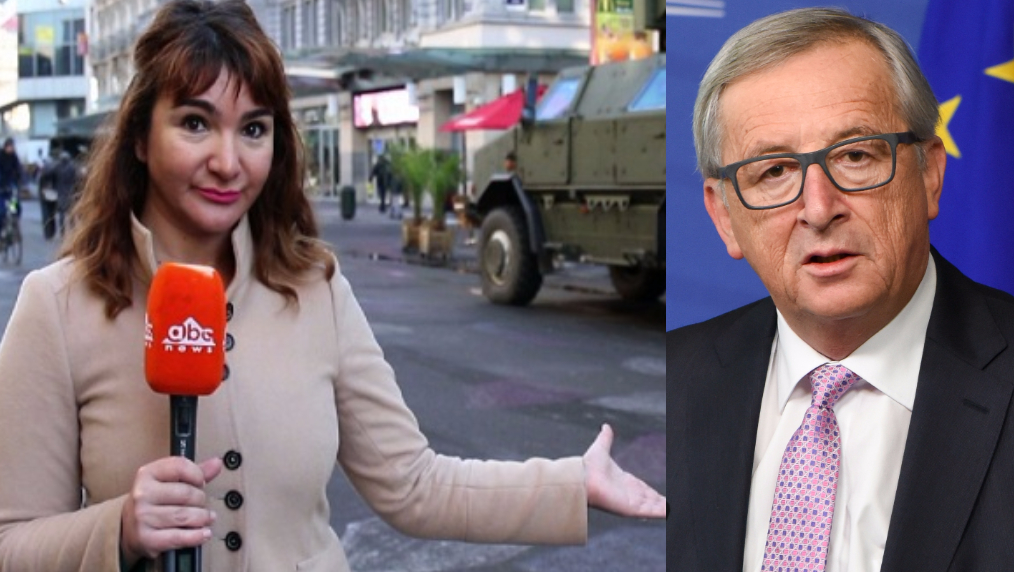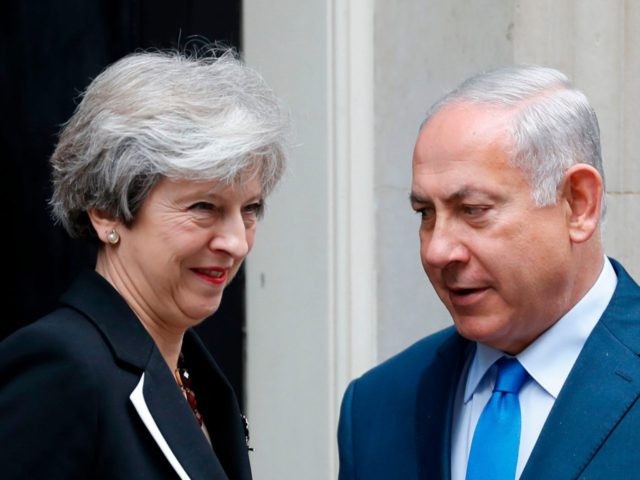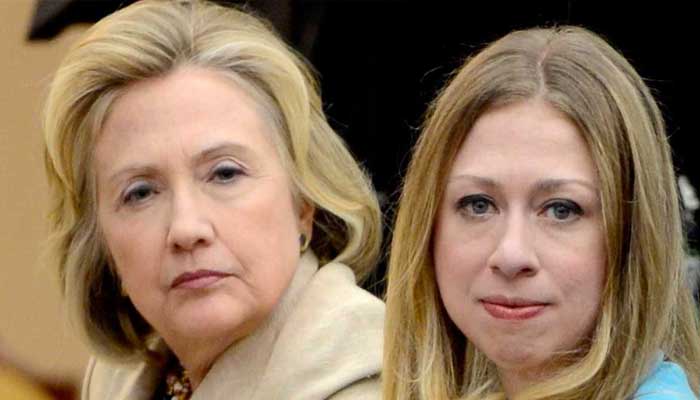
1 Shtatori nuk është vetëm një datë historike. Këtë të dielë, partia populiste, AfD arriti rezultatin më të madh në zgjedhjet e dy landeve. Kjo tregon, se sa po lufton Gjermania me veten, komenton Ines Pohl.
Më 1 Shtator 1939 në orët e para të mëngjesit gjermanët filluan Luftën e Dytë Botërore me sulmin kundër Polonisë. Me miliona të vrarë, të plagosur, gra të përdhunuara, të dëbuar dhe një botë, që ende edhe sot vuan nga vala shkatërruese e nazistëve.
Pikërisht më 1 Shtator, 80 vite më vonë një parti feston në Gjermani suksesin dyshifror në votime, duke i kërkuar votat me qëndrime nacionaliste dhe raciste. Në Saksoni dhe Brandenburg ajo arriti rezultatet më të mira të shënuara nga AfD. Me këtë rezultat, kjo parti ia doli që në të dy landet lindore gjermane të ngjitet vetëm brenda pak vitesh nga një parti e vogël në forcën e dytë politike më të rëndësishme në parlamentet e landeve. E nuk mund të qetësohesh, pse populistët e djathtë, megjithë prognozat serioze, nuk ia dolën dot të dilnin në Saksoni partia më e fuqishme.
Kohë të suksesshme ekonomike
Çfarë na thotë ky rezultat për Gjermaninë, që në kohë ekonomikisht shumë të suksesshme dhe një peizazh partiak relativisht të qëndrueshëm, një parti e tillë arrin kaq sukses? Dhe për çfarë duhet të trembemi, nëse kohët ndryshojnë dhe Gjermania bie ndoshta edhe në një vorbull të recesionit botëror? Sa të sigurta qëndrojnë muret mbrojtës kundër zjarrit, sa e fortë vetëdija, që në Gjermani kurrë më nuk duhet të marrë përgjegjësi qeverisëse një parti, me një shumicë anëtarësh racistë?
Të humbura kanë dalë të dyja partitë tradicionale, CDU-ja e Angela Merkelit dhe socialdemokratët, që morën në të dyja landet rezultatet më të dobta që nga bashkimi i Gjermanisë. Kjo tendencë në thelb do të thotë, se edhe në Gjermaninë kaq të stabilizuar po bëhet gjithnjë e më e komplikuar gjetja e koalicioneve qeverisëse. Dhe se nuk funksionon më parimi i partive popullore të mëdha, që si një rezervuar mbledhës fusnin brenda ekstremet majtas e djathtas qendrës politike. E gjitha kjo është një provë, se sa po lufton Gjermania në kërkim të asaj, se çfarë vendi do që të jetë? Çfarë kursi do të ndjekë në politikën e refugjatëve, por edhe në çështje të tjera të mëdha ekonomike dhe socialpolitike. Sa shtet kombëtar duhet dhe sa integrim në Europë?
Arroganca është në vendin e gabuar
Është në natyrën e historisë, që vetëm më pas dallohet dhe vlerësohet, se çfarë ka ndodhur në një moment të caktuar historik, dhe se çfarë ndikimi kanë pasur ngjarjet për të ardhmen. Në këtë kuptim vetëm mund të spekulosh, se çfarë do të shkruhet më vonë në librat e historisë për 1 shtatorin e vitit 2019.
Nuk ka dyshim: Rezultate të tilla e bëjnë me krahë AfD-së në shkallë federate, ajo ndjehet e fortë dhe nuk ka për t’u zhdukur kaq shpejt nga skena politike. Për këtë arsye, partitë e tjera duhet të gjejnë mënyrën si të veprojnë me këtë parti. Të dalësh tani me fodullëk dhe arrogancë, do të ishte një gabim fatal. Këto rezultate ua kanë bërë brutalisht të qartë atyre që kanë përgjegjësi politike, se diçka në këtë vend ka shkarë keq, dhe se ata do të bënin mirë të vështrojnë me kujdes dhe të dëgjojnë me vëmendje, se çfarë i çon votuesit në krahët e populistëve.
Është pjesë e përgjegjësisë historike të Gjermanisë po ashtu, që ka parime të caktuara, të cilat janë të panegociueshme. Këtu bën pjesë ushtrimi i lirisë së besimit fetar, po ashtu edhe e drejta për azil për njerëzit në rrezik. Këtu bën pjesë po ashtu, që parime të tilla nuk lejohet të sakrifikohen, pavarësisht sa i vështirë është krijimi i një qeverie/DW/.
VERITAS.COM.AL
Boris Johnson is the EU’s nemesis. But could he be Europe’s
It is a curious and rather moving experience to see someone you have known for thirty-five years standing in front of that famous black door in Downing Street. The idea that Boris is a buffoon is ridiculous to anyone who knows him. He is funny because he has a fundamentally comic vision of the human condition, like many clever people. You spend most of a lunch with him laughing. But he is one of the cleverest people I have ever met. His staff at the FCO said he actually read what they had written and asked for more. So I appeared on Sky News a few days ago bigging him up:
‘Don’t mistake his comedic ability for incompetence. Yes, he can’t see a joke without making it (an attractive failing) but he is extremely intelligent. He can wrong-foot you in an argument very quickly. He will be a leader who articulates a vision and a strategy to get there and then hires and motivates very good people to do it. I think he succeeded in doing that at City Hall.’
I have found that appearance gave me a lot of street cred at my local Wetherspoons, where I am now treated as a person of national importance. The same can’t be said for my status at an Oxford high table, where my connection to Boris has made me a pariah. Dons felt the same way about Mrs Thatcher, of course.
I do not live in London but, like an anthropologist, make field trips into the capital, sometimes prolonged and dangerous, and talk to people – members of the elite – who don’t realise just how different their worldview is from that of people who live and work in the provinces. Out here, Boris’s views on the EU find a ready echo in ordinary people.
The Establishment might better consider how their opinions have got so out of kilter from the rest of the country. Rather than blaming Boris and Leave for appealing to the worst aspects of human nature, they might better try to understand how and why their views differ from a large chunk of society. Hillary Clinton’s comments, that Trump’s supporters were ‘a basket of deplorables’, catches this failure perfectly. In a democracy, this has electoral consequences for politicians, as Clinton now knows.
Boris’s populism (for that is how it is going to be spun by some) has taken on two arguments, on which he may very well be proved right. First, that the nation state is the primary (perhaps the only) object of an individual’s loyalty to a larger whole. Second, that Brexit is a huge economic opportunity.
Nationalism is condemned by some as an outdated concept. It certainly can be used for harm and is a necessary condition of most wars. But what if Boris is right and there is no equally effective substitute for the nation state? Perhaps, like religion, it can show people at their worst, but it may, too, bring out their best. Perhaps human nature and the love that many people have for their country cannot be easily overwritten by loyalty to a twenty-seven member semi-democratic club.
Those of us who remember the rapidity of the collapse of another undemocratic, economically illiberal and unpopular multi-state coalition in 1991 would not be surprised if the EU disappeared equally quickly. I am not suggesting that the EU is anything like the Soviet Union but it does share at least those three characteristics with it. All history tells us that multi-state coalitions are fragile things. And the Soviet Union was also the subject of quasi-religious veneration by some lefties.
By standing up to the EU, Boris may show it to be the paper tiger that sceptics have always suspected it to be. For the EU, Brexit presents an existential crisis – if Britain leaves and make a success of it, it is the beginning of the end for it. Others will surely follow, as squeaking rats scurry over the side of a sinking ship. For that reason, they were never going to make it easy for us to leave and May should have been prepared for a battle to the death – which means leaving without a deal.
If Boris can get us out and then call to that basic, decent patriotism across Europe – to countries, rather than Brussels – he could be a figure of the same international weight as his heroes Churchill and Thatcher, both politicians with a visceral connection to the nation state.
We know that Boris has prepared for being PM by studying the greatest of all his predecessors – what better preparation could there be than studying Churchill? – and perhaps what he says, and does now, could lead all Europe into broad, sunlit uplands. I wonder if we are now in one of those tides-in-the-affairs-of-men moments? Perhaps these are great days not just for him but for all of us.
The second argument that has taken him to power is his articulation of a vision of Brexit as a huge opportunity, a giant Singapore, a free trade superpower off the coast of Europe, with a free trade deal with America and a free trade with Europe. Remain did not have such a powerful idea – all those who want Britain to stay in the EU can say is that it’s not possible to leave or that bad things would happen if we did.
I spent a year living in Poland with a fairly prominent continental pro-EU politician and all the arguments I heard from him were: ‘It’s too difficult for you to leave’, rather than any concrete advantages to Britain. Other arguments were silly: ‘When you reapply we will make you drive on the right’. But these suggested that Leave had disrespected something sacred.
Boris started that lese-majeste with comic Daily Telegraph stories on the Eurocrats’ anathema towards wrongly-shaped bananas or their supposed attempts to axe the much-loved figure of the Oxford college chaplain. But if there are concrete benefits to membership of the EU to counterbalance its costs (and there are some) let’s hear them.
Theresa May conducted a masterclass in how not to negotiate. In future, business school students (and I used to be one) will be taught her EU negotiation strategy in order to avoid it. The textbooks of negotiation tell you that you need a BATNA: the Best Alternative to a Negotiated Agreement. In this case, leaving without a deal. But while May said no deal was better than a bad deal, she showed no sign of being prepared for this and it seems that Sir Humphrey and the Establishment had told her that it would be disastrous.
How successful a PM is is often out of his or her hands. If the Falklands had not been invaded, then Mrs Thatcher would probably not have won the 1983 election. She would have been a female Edward Heath without the laugh. Instead, she became a great figure.
So let’s see whether events will fall favourably for Boris. But Boris does have the personal qualities that could make him into a great PM. He has what Aristotle called greatness of soul – generosity of spirit, a desire to believe the best of people, a lack of pettiness and envy which is rather uncommon – so I do not think that the greatness of the office will find him out. It will come down to events and that means luck.
Does Boris have luck, the quality Napoleon looked for in his generals? Well, so far, yes. He bet everything on the EU referendum and, against the odds, won. He has the great good luck of facing someone as spectacularly unelectable as Jeremy Corbyn, just as Mrs Thatcher did with the much more intellectually serious figure of Michael Foot; both of whom espouse a political philosophy that, for most people, was proven wrong long before its final collapse in 1991.
I wrote to Boris a few days ago to congratulate him. I finished by saying: ‘Remember, Caesar, you are mortal and all political careers end in failure’. But you have a hinterland, a life of the mind and, like Cincinnatus, can retire when the battle is done to the cool and solitude of a library in Oxford and write more books, although you won’t be popular with the dons.





